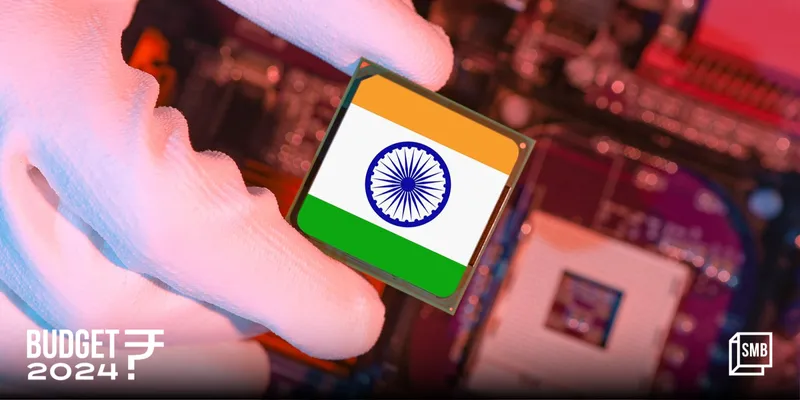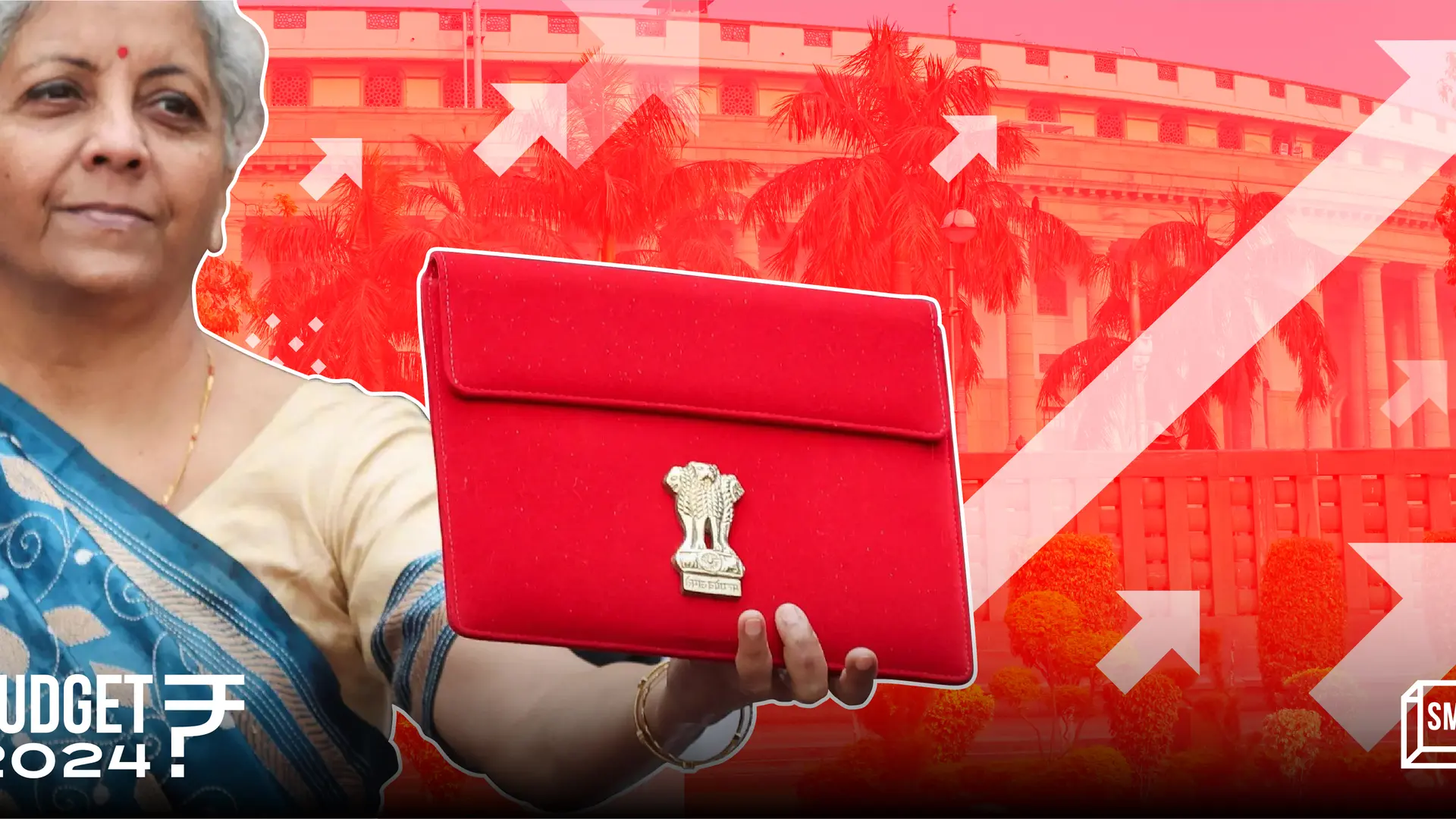MSME ecosystem stakeholders react to Budget 2024; term it “optimistic”
Finance Minister Nirmala Sitharaman presented the interim Budget 2024, and here’s how the MSME ecosystem stakeholders reacted to it.
The interim Budget 2024 contained a mixed bag for the micro, small, and medium enterprises (MSME) sector, which had high hopes for a favourable announcement by Finance Minister Nirmala Sitharaman that will help them grow their business.
Nonetheless, stakeholders have taken it as an “optimistic” budget.
Talking to SMBStory, Vinod Kumar, President of India SME Forum, says, “The government has displayed true concern for MSMEs by prioritising adequate financing as well as technological and skill upgradation, apart from enabling a growth-oriented and MSME friendly regulatory environment.”
The reaction of ecosystem stakeholders
The Budget introduces a series of measures designed to enhance support for MSMEs, says Hariom Seth, Founder of Tagglabs—a tech-based marketing agency.
“The announced revamping of the credit guarantee scheme for MSMEs is targeted to enable collateral-free credit up to Rs 2 crore. This enhanced cover coupled with faster settlement of claims will incentivise banks to lend more freely to MSMEs.”
Seth highlighted that these initiatives align perfectly with the current momentum in digitisation, coupled with programmes like Make in India, creating new avenues for growth for small enterprises.
"A big boost has come for 63 million MSMEs in India with the government clearly stating that timely access to finance, adoption of technology and skilling of MSMEs is a policy priority for the government,” says Sachin Agrawal, Co-founder and CEO of Bizongo—a tech-enabled B2B ecommerce and supply chain platform.
He added, “The interim budget has given several indications that 2024 will be a year for MSMEs to scale their ambitions with the increased outlay for infrastructure spending across mobility, green energy, and bio-manufacturing.”

According to Agrawal, this Budget is poised to propel the growth of countless small businesses within the manufacturing value chain. Embedded Finance in the B2B sector is anticipated to experience significant adoption by both BFSI and non-BFSI companies concentrating on MSMEs. This expectation is grounded in the government's emphasis on finance accessibility as a crucial lever for uplifting MSMEs.
As per the Budget document, the government has augmented the budget estimate for the Raising and Accelerating MSME Performance (RAMP scheme) to Rs 1,170 crore for FY25—up from the revised estimate of Rs 1,000 crore in FY24.
Additionally, the allocations for the Khadi Gramodyog Vikas Yojana and PM Vishwakarma schemes have been raised from Rs 810 crore to Rs 1,037 crore and from Rs 990 crore to Rs 4,824 crore, respectively, compared to the previous year.
“MSMEs in the solar energy, construction, food processing, dairy and fisheries will get a huge boost from the various announcements while skilled micro-entrepreneurs, artisans, and craftsmen, which form a large part of our labour-intensive sectors will get supported and connected to national and international markets through the PM Vishwakarma,” Kumar from India SME Forum mentions.
The PM Vishwakarma scheme has seen an over 7X surge in Budget estimates, and Kumar says that until now only the Mudra scheme existed to give loans to micro-entrepreneurs. However, of these entrepreneurs, many of them weren’t eligible for the scheme since they didn’t have a fixed establishment.
“The applications for enrolling into the PM Vishwakarma scheme have been huge. Hence, the government’s allocation to this scheme will play a crucial role in the development of the artisanal and craft community,” Kumar asserts.
The manufacturing sector has also seen some positive remarks, where Sundeep Mohindru, Promoter and Managing Director of M1xchange, says, “There is an overall boost to the manufacturing ecosystem with the outlay for infrastructure being 3.4% to the GDP. This will have a ripple effect on the entire value chain of manufacturing, a large part of which is led by the MSMEs.”
M1xchange is one of the leading TReDS platforms in India that facilitates working capital solutions for MSMEs through analytics-based invoice discounting.
“The increased support for MSME training in the 2024 Budget is crucial for growth, aligning with the 'Amrit Kaal' initiative for inclusive economic development. With over 63 million MSMEs contributing significantly to India's GDP and employment, the Budget strategically fuels their growth,” says Sonam Motwani, CEO and Founder, Karkhana.io—an on-demand manufacturing and rapid prototyping platform.
What’s further expected?
While this was an interim Budget, the MSME ecosystem stakeholders have further expectations that will drive their business growth.
Ashok Rajpal, Managing Director of Ambrane India—a rapidly advancing entity in computer peripherals, mobile accessories, wearables, and power banks—underscores the notable achievements of the Skill India Mission. The initiative has successfully trained 1.4 crore youth, upskilled and reskilled 54 lakh individuals, and established 3000 new ITIs.
These milestones signal a transformative era for the workforce, particularly benefitting India's manufacturing industry. The achievements align with the overarching objective of nurturing a skilled workforce to support the growth of a robust $300 million electronics sector.
“While positive strides are acknowledged, further emphasis on incentives for innovation, R&D, and export-oriented measures would contribute to our industry's sustained growth. Additionally, anticipated adjustments in import duty on electronics raw materials and higher dumping duty on imported electronics products could fortify our domestic market further. Addressing these considerations will be vital for ensuring a resilient and globally competitive electronics industry,” Rajpal added.
A notable initiative named 'First Develop India' (FDI) was introduced in Budget 2024. The intention behind negotiating treaties with other countries is to enhance foreign investment in India. This aligns with India's trajectory towards achieving a $30 trillion economy by 2047.
However, Hardika Shah, Founder and CEO of Kinara Capital, believes it is also the right time for the government to reinstate the previous incentive for foreign portfolio investors (FPIs) as the tax rate was hiked from 5% to 20% on the interest earned on bonds.
“This rise in the tax rate will raise the borrowing costs by 30-40 basis points and create a liquidity crunch in an otherwise thriving economy with vast potential at every level. Particularly, for the NBFC sector that has been playing a pivotal role in addressing the last-mile credit needs of MSMEs, FPI investment has the potential to drive fast economic growth.”
Edited by Suman Singh



